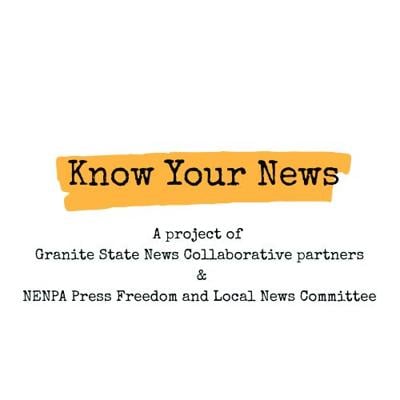When I worked as a reporter for a local newspaper, people would sometimes ask (or complain) about something that had appeared in our opinion pages. "Why’d you endorse that guy for governor?" "Does that columnist have to be so mean?"
My answer was always simple: "I’m the wrong person to talk to."
As a member of the news staff, I had nothing to do with the opinion section, which was written by different people and overseen by a different editor. I found out what our opinion section said the same way everyone else did: by reading the paper each day.
But those distinctions aren’t always obvious if you don’t work in a newsroom. A 2018 survey found that, while three-quarters of Americans could usually tell news from opinion in their go-to news source, fewer than half could do so with articles they came across on Facebook or Twitter.
So here’s a quick guide to three kinds of content you might encounter in the media: news, opinion and sponsored content.
A news story provides information and context about current events. In essence, its job is to answer factual questions.
That can mean a lot of different things, of course. A breaking news article might have up-to-the-minute details about the location of a house fire, whether it’s contained and whether anyone was hurt. An investigative article might dig into whether a company knew its factory was releasing harmful pollutants.
In news stories, reporters will generally attribute information to specific sources, seek multiple perspectives, include relevant context and seek comment from subjects of stories.
News stories can also include analysis drawn from a journalist’s reporting and expertise, such as how a new development could reshape a particular policy debate.
Opinion pieces, meanwhile, make an argument about current events. Like news articles, they sometimes include original reporting or research. But the goal is to persuade, not just inform.
Opinion can come in different formats. An editorial expresses the views of the news organization’s own editorial board — a group of writers and editors who function as the voice of the publication. An op-ed, by contrast, is an opinion piece written by an outside contributor.
Editorial boards operate separately from a publication’s news staff, which is supposed to cover the news independent of the editorial board’s views.
In recent years, some publications have taken steps to more clearly distinguish news from opinion as a way to increase transparency and reader trust. Examples include putting “opinion” in headlines so it’s visible in social media posts, and adding a note to editorials explaining that they’re independent from news coverage.
Sponsored content, also called native advertising, is content that’s designed to look similar to the publisher’s own content — but is actually paid for by an advertiser.
An example would be an online news site carrying an article with cleaning tips that’s “presented by” a paper-towel company.
News outlets’ adoption of sponsored content has been controversial, with some studies finding that most news consumers don’t recognize it as advertising.
The Federal Trade Commission requires that sponsored content be clearly marked, though different publishers use different terms — “paid post,” “partner content,” “from our partners,” “presented by” and similar phrases all denote sponsored content.
Some — not all — publishers also use different fonts and formatting to visually distinguish sponsored content.
•••
This story is part of Know Your News — a Granite State News Collaborative and the New England Newspaper and Press Association's Press Freedom Committee initiative on why the First Amendment, press freedom, and local news matter. Don’t just read this. Share it with one person who doesn’t usually follow local news — that’s how we make an impact. More at laconiadailysun.com/knowyournews.


















(0) comments
Welcome to the discussion.
Log In
Keep it Clean. Please avoid obscene, vulgar, lewd, racist or sexually-oriented language.
PLEASE TURN OFF YOUR CAPS LOCK.
Don't Threaten. Threats of harming another person will not be tolerated.
Be Truthful. Don't knowingly lie about anyone or anything.
Be Nice. No racism, sexism or any sort of -ism that is degrading to another person.
Be Proactive. Use the 'Report' link on each comment to let us know of abusive posts.
Share with Us. We'd love to hear eyewitness accounts, the history behind an article.